Padma Lakshmi recalls painful endometriosis battle: ‘I was really forlorn’
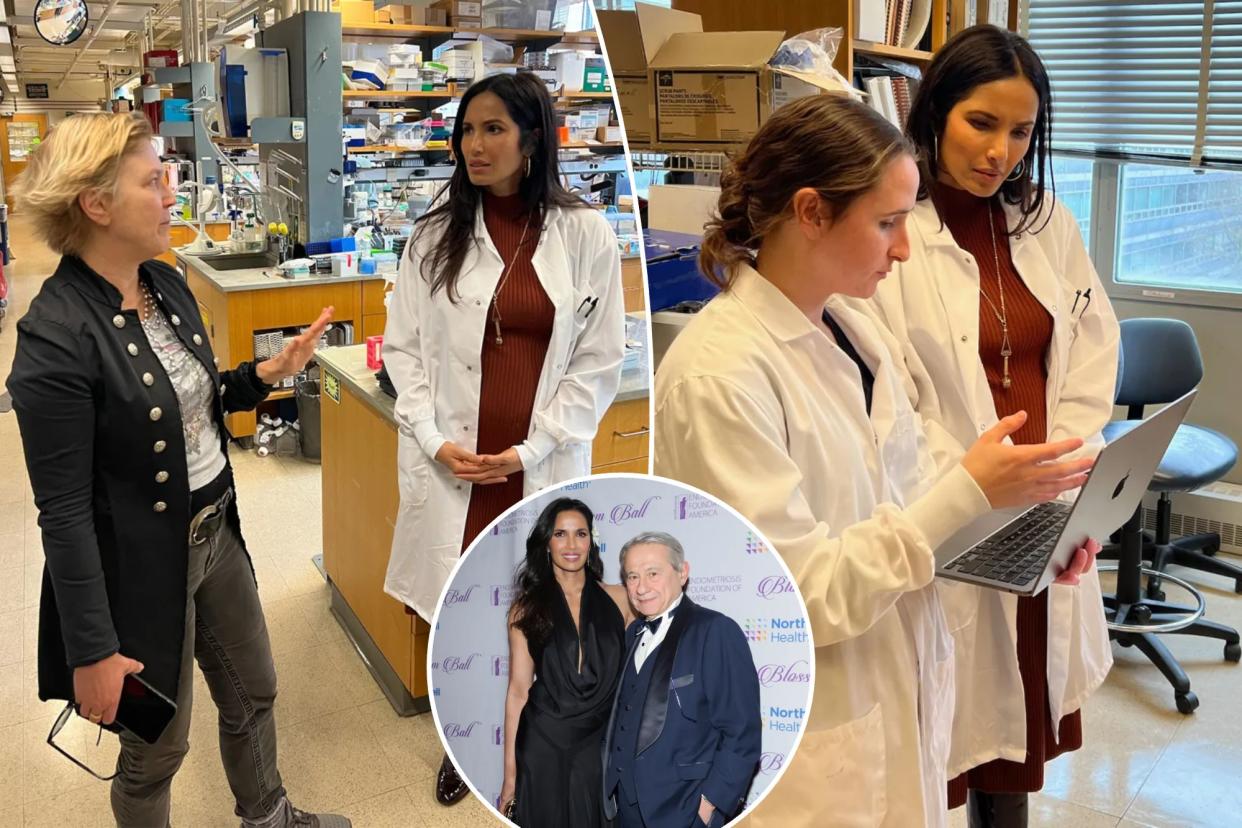
Padma Lakshmi used to spend a week every month pressing hot water bottles, heating pads or small strips of fabric soaked in castor oil on her stomach to ease her pain.
Finally, at 36, she was diagnosed with Stage 4 endometriosis — an agonizing condition that occurs when uterine-like tissue grows outside the uterus.
“I’ve had five different procedures. And I was very, very lucky to have my daughter — she was basically a miracle because … I was told I couldn’t have children,” the “Taste the Nation” creator, 53, told The Post.
“I had one of my fallopian tubes removed and part of my left ovary removed by the time everything was said and done,” she added. “And I was really forlorn, as you can imagine. But on the other hand, once I got on the other side of the pain, I saw what life was like for normal women — and it was a game changer.”
Dr. Tamer Seckin, an NYC board-certified gynecologist and laparoscopic surgeon, identified and treated Lakshmi’s endometriosis by carefully excising tissue. The two co-founded EndoFound, a nonprofit that raises awareness and funds research on endometriosis, which affects about 10% of US women 15-44 years old.
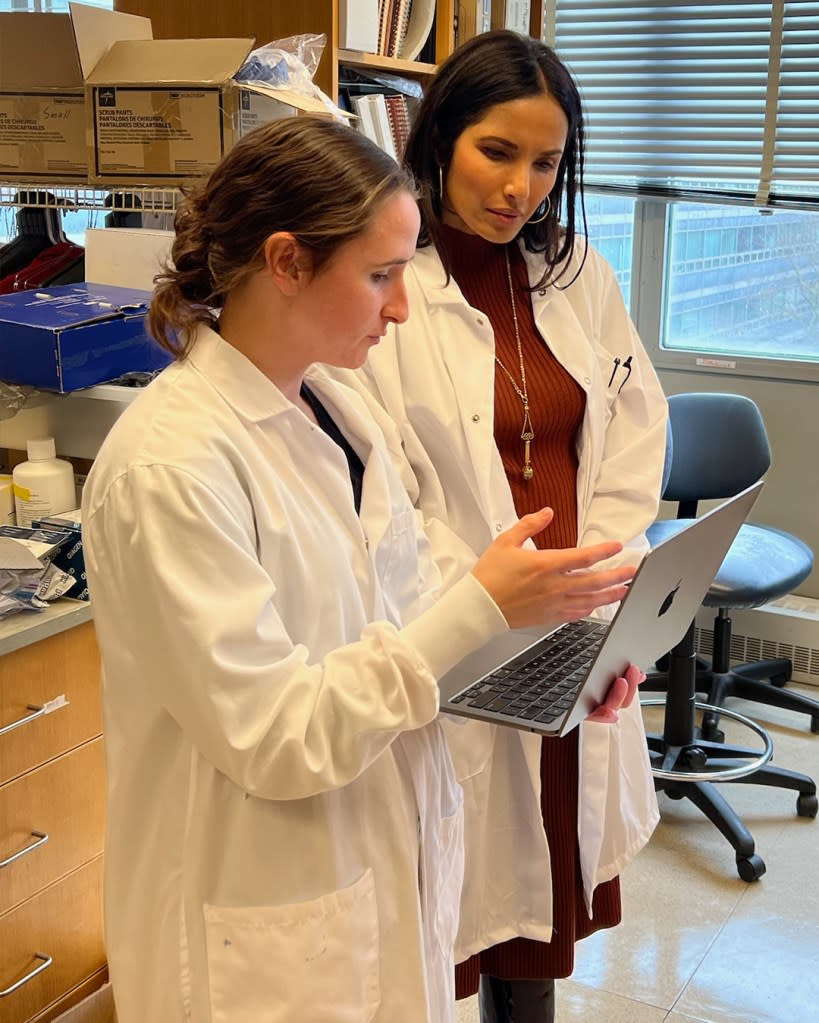
EndoFound is celebrating its 15th anniversary and honoring Bindi Irwin, 25, on Friday at Gotham Hall at its annual Blossom Ball.
Irwin revealed her endometriosis battle last year, undergoing surgery at the Seckin Endometriosis Center in Lenox Hill Hospital.
“For Bindi Irwin to go out and say, ‘The doctors removed 37 lesions from me. Everybody told me A-B-C-D, which didn’t work. Nobody believes me. I had this procedure. I feel different, and it’s been a year — my life has changed.’ This is so impactful,” Seckin told The Post.
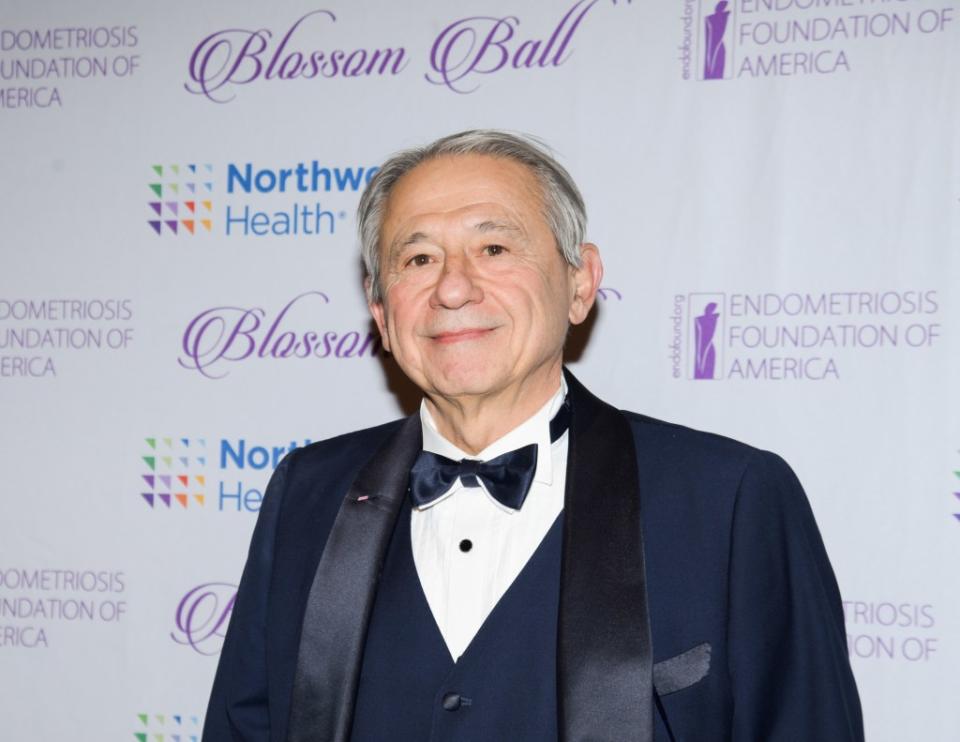
No one knows for sure what causes endometriosis — but it’s known to cause excruciating menstrual cramps, pelvic and lower back pain, pain during sex, heavy bleeding during periods and infertility.
Experts say that 25% to 50% of infertile women have endometriosis, and 30% to 50% of endometriosis patients are infertile.
Lakshmi said by the time she got to Seckin, her endometriosis was “everywhere.”
“I had 19 biopsies, of which 17 came back positive for endometriosis. I had my kidneys in stents,” she shared. “I had surgery that was serious enough, about a four-and-a-half-hour surgery, that I was in bed from about Thanksgiving to February.”
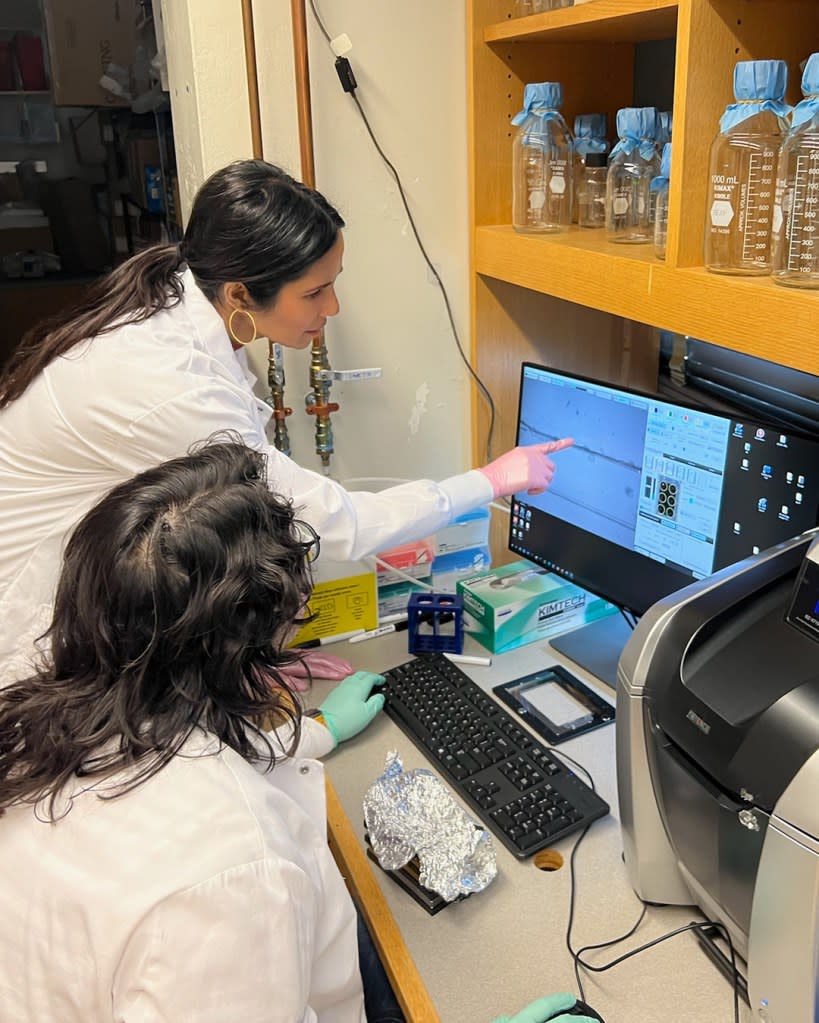
Luckily, she was able to give birth to Krishna in 2010 at the age of 39.
Lakshmi doesn’t want to “expect the worst” for her daughter when it comes to endometriosis, but she says the 14-year-old does “know the symptoms by heart.”
“We know that if someone’s mother or sister has endo, they are [up to 50% more] likely to get it,” Lakshmi explained. “We’ll just have to watch as she goes through puberty.”
Lakshmi and Seckin, meanwhile, hope to bring more attention to the plight of endometriosis.
Seckin said doctors need to be better educated on identifying the complex disease, and the quality of treatment, which is surgery, needs to be improved.
“I think in the next 15 years, if we can really increase the early diagnosis, early awareness, and timely management, this is key,” Seckin said.
He added: “Certainly the disease is not cancer, but it’s not any less than cancer because it basically involves a whole lifespan of the reproductive life of a female, decreasing their quality of life, their fertility, their relationship, everything you can imagine.”
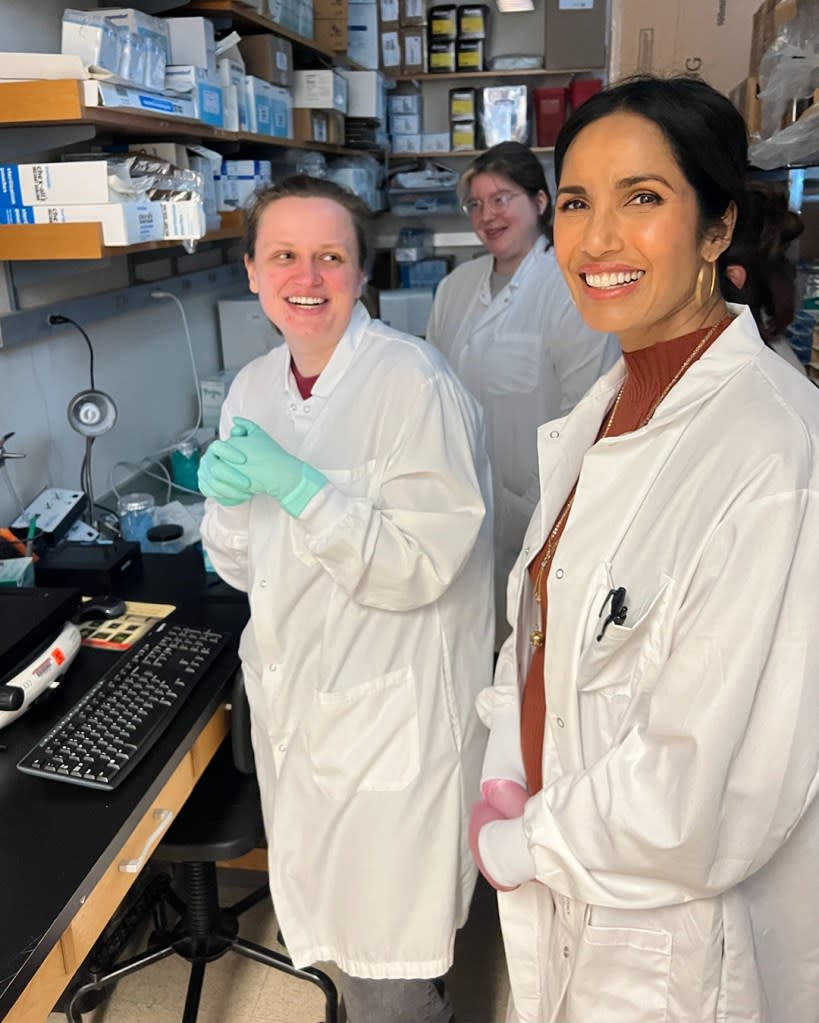
For her part, Lakshmi is hoping for the development of nonhormonal endometriosis medication. Dichloroacetate, which has been used to treat lactic acidosis, has shown promise.
Reflecting on 15 years of EndoFound, Seckin and Lakshmi highlighted the 2019 passage of a New York law to ensure age-appropriate menstrual health and endometriosis materials are available in schools. The organization is pushing to extend this legislation to eight additional states.
“We would really like to see that be a national law that any public school … should offer education about this illness because early treatment is the key,” Lakshmi said. “And most women don’t get treatment for an average of 10 years after suffering.”
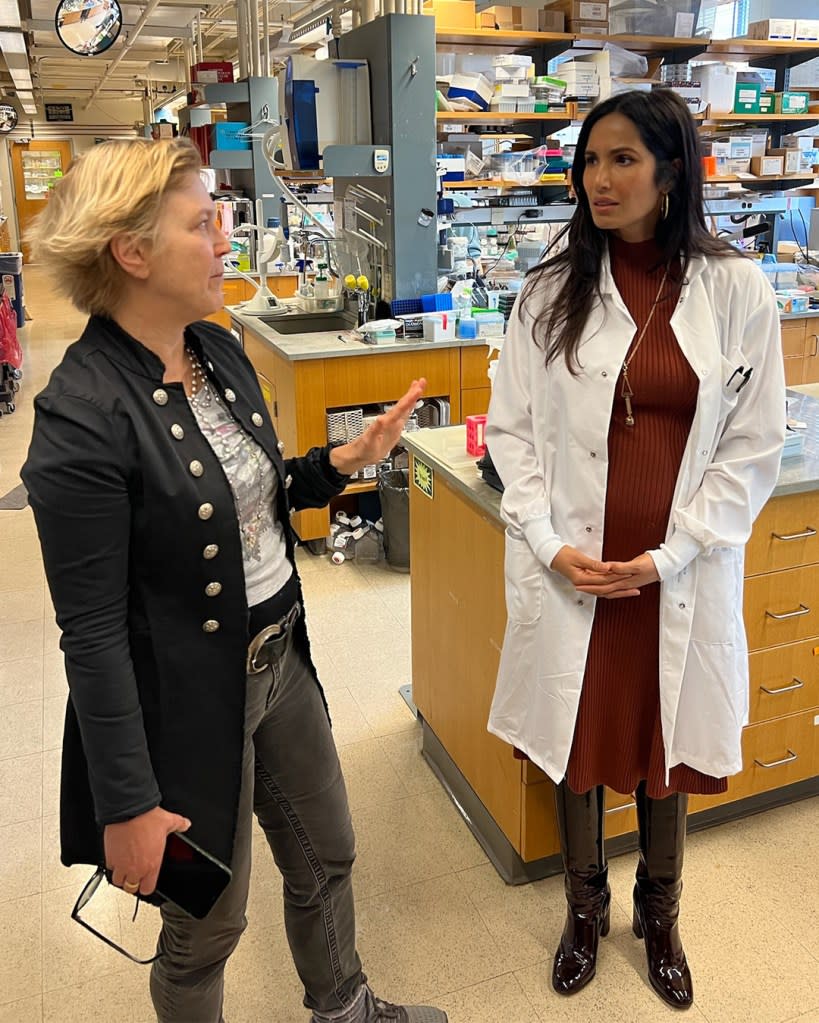
EndoFound has also awarded nearly $1.5 million in research grants to over 30 institutions.
Lakshmi said she was “pleased” to hear President Biden call on Congress to invest $12 billion in new funding for women’shealth research, in his State of the Union address in March.
“I’m hoping that we can triple the funding that our federal government spends on this, because if you think about it, half of the population is potentially susceptible to this disease,” Lakshmi noted. “So it’s something that is not only a health issue, but an economic issue for the American economy.”
Blossom Ball is EndoFound’s largest fund-raiser of the year — individual tickets start at $750.
Past honorees include Susan Sarandon and Lena Dunham.